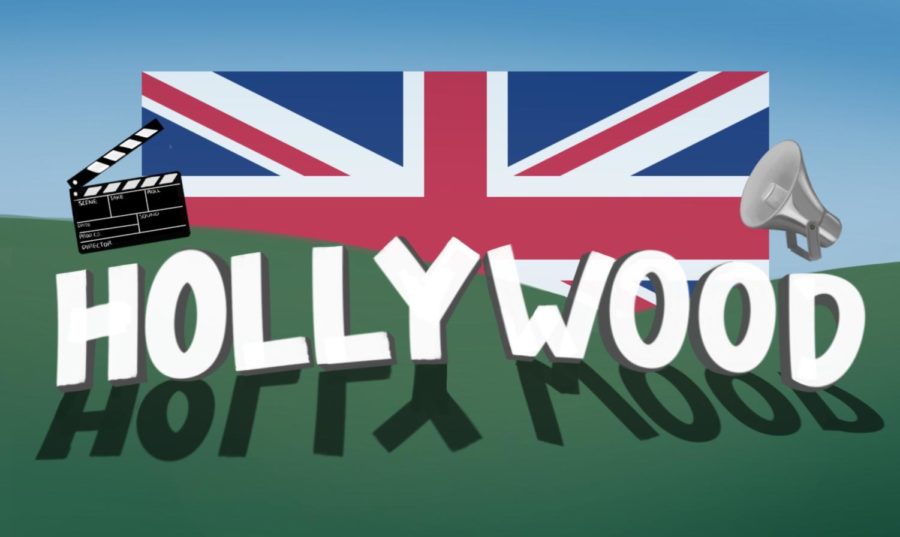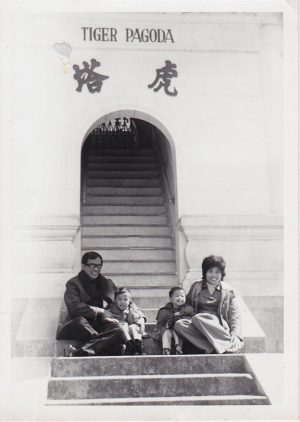Why are all movies in a British accent? Exploring the psychology and history behind the dominance of British accents in the film industry
Many film actors and characters speak in a British accent, which exposes the potential link to the British colonialism and psychological influences.
September 28, 2021
“Les Misérables” recounts The June Rebellion, an uprising in 19th century France that encapsulated the heart of the French Revolution. It takes place in Paris and Montreuil-sur-Mer, two monumental cities in France. Furthermore, the characters have French names: Jean Valjean, Fantine, Cosette and Javert. Despite obvious indicators that this is a French film, hearing all the characters speak in a British accent is enough for people to wonder whether this film is about 19th century Britain.
Why is “Les Misérables,” a film about historic France, in a British accent? We can rule out the fact that it’s because the French love the British. Instead, it might be a result of the dominance of British accents in the film industry that has stemmed from the combination of psychological perception and Britain’s indomitable past.
By “dominant,” it means that actors and actresses in numerous films speak in a British accent to the point where it has become standardized. Historical accuracy is dismissed, and the British accent is prioritized.
Take Tim Burton’s animation “Corpse Bride” for example. The film is based on a Russian-Jewish folktale, yet all the voice actors speak in a British accent. Moreover, Netflix’s hit comedy “The Death of Stalin” occurs in 20th century Russia, but Lavrentiy Beria, the most dedicated Marshal of the Soviet Union, speaks in the most stereotypical, posh British accent.
This overlooked phenomenon is one of the many outcomes of popular preference towards the British accent. The British accent, the posh or Queen’s accent to be specific, has favorably adhered to a wide range of audiences. A YouGov poll survey displays how 35% of people across all ages, races and gender have found British accents to be “attractive.”
Kimberly DeBarger-Gestring (D.G.), a Dougherty Valley High School (DVHS) theater student, confirms this idea by expressing her admiration for British accents.
“It sounds very professional and sophisticated to me, “ she said. “Especially if you look at [James] Bond movies, you associate him as the ‘cool guy’ because of his nice, posh British accent. Or at least in America, we tend to associate British accents with sophistication or ‘coolness.’”
An article on LinkedIn by Hisham Aramouny states that the reason why many perceive British accents favorably is because of “positive bias.” Specifically, English speakers are more “positively biased” towards British accents because they “have been unconsciously and actively conditioned to accept a given accent.”
However, associating British accents with “sophistication” or “coolness” goes beyond personal preference or positive bias. DVHS AP Psychology teacher Thomas Chamberlain discusses how the favorable perception of a posh British accent is rooted in “categorization,” a process where humans instinctively classify one group of people based on what they observe.
“We take in all the information from our perceptions and put people into boxes or categories. When we hear a certain type of British accent, we’re going to categorize it as being smart, wealthy and a ‘good person,’” he said.
Categorization explains why films specifically speak in the posh British accent. A posh accent is reserved for categories relating to wealth, education and upper-class, which ultimately influences people to appreciate it even more than other British accents (i.e. cockney accents). And this is a widespread phenomenon: Aramouny states how “education, social and economic statuses, ethnicity, etc.,” have a major impact on the majority’s perceptions.
Chamberlain also emphasizes how categorization is an inevitable aspect of first perceptions.
“Accents help us either reaffirm stereotypes, or start stereotyping people,” he said. “Our brains automatically categorize them and put them into this or that. And it’s not on purpose. Our brains are just designed to do that.”
In addition to categorization, feasibility plays another important role in this chain of psychological phenomena. It might simply be easier for people to understand British accents over other types such as French or German accents. Kristin Van Engen, the Assistant Professor of the Department of Psychological and Brain Sciences at Washington University in St. Louis, states how comprehending a new accented speech “requires more effort than listening to a native speech.”
D.G. reciprocates Engen’s findings by explaining the difficulty she encounters when listening to accents outside of British accents.
“If someone has a hardcore French accent, I’m sorry, but I’m probably only going to understand a half of what that person is saying. I won’t really know what’s happening,” she said.
D.G.’s personal experience represents most of the people preferring British accents over other accents. If “Les Misérables” characters spoke in a French accent, it would hinder not only the audience’s comprehensibility, but also cost their enjoyment and entertainment.
Chamberlain explains that the reason for British accents being easier to understand than other accents is because of the differing levels of severity — how strong the accent is — and how that affects the flow of the conversation.
“When I’m dealing with a language where the phenomic or the bass sounds of that language are the same, it’s not hard for me to process. But if [I] listen to the same language with different fundamental qualities in the accent, it’s hard to understand what the word is,” he said.
Although categorization and perception play a large role in people’s perceptions, the last psychological phenomenon is the fundamental aspect of accents: language development.
What is language development? According to Psychology Wiki, language development is “a process that starts early in human life, when a person begins to acquire language by learning it as it is spoken and by mimicry.”
In other words, it’s when people are exposed to at least one language along with its vernacular and phonetic qualities. However, even though everyone experiences language development, the outcomes of it significantly differ from person to person.
For example, someone who grew up speaking a verb-friendly language like Korean or Japanese might have different interpretations on certain topics from those who grew up speaking a noun-friendly language such as English or French. These differences pile up as a person becomes older, causing linguistic barriers to prevent one from understanding any other languages or accents outside of the one they grew up speaking. Thus, this explains that the reason why the film industry relies on the British accent is because it’s most familiar to English speakers, which makes up the majority of viewers.
“The idea of learning a bunch of different languages when we were very young [lets us] have the ability to understand what someone is saying. So hearing accents and the sounds can be difficult for an English speaker than someone who has more exposure [to other languages],” Chamberlain said.
Psychology significantly contributes to the dominance of British accents in the film industry, yet another factor that influences this dominance is embedded in Britain’s past as one of the most powerful colonizers.
From the 16th to 18th century, Britain colonized landmarks across the entire globe, a few including the Americas, South Africa and Honduras, resulting in their recognition as one of the few and superior countries with global hegemony. In addition, this label of superiority also stemmed from how they were the perpetrators of severe consequences of colonization (i.e. slavery, unfair representation in the government, poor working conditions, etc).
Despite the brutal consequences of British colonization, the superiority complex embedded within it still remains honored to this day. A 2014 YouGov article addresses how one in three British people still think that the British Empire was beneficial and that its colonies will improve society today. Moreover, a new YouGov survey from the same article finds that only 19% is ashamed of the British Empire and a whopping 59% believes that it’s “something to be proud of.”
DVHS theater teacher Noah Kopp connects this idea to how British colonization of America enforced a superiority complex known as the “White Man’s Burden” into many different cultures, including American culture.
“Our frame of reference is our ancestors coming from England so breaking off and forming our own country is a part of American identity,” he said. “And I think for some white Americans, they have a sense that the old traditions like the monarchy have some innate power to them; thus, British society is a marker of status in some way.”
However, the impact of British colonization is not only pertinent in America. DVHS Teacher Librarian Allison Hussenet shares her experience of how the idea of British superiority occurs in daily life, wherever one is.
“When I taught in France, after I graduated from college, some of the teachers were disappointed that I was coming from America because they wanted their students to learn British English. They felt that it was superior [and] fancier,” she said.
Regardless of how widespread British superiority is, Britain’s history plays a large role in elevating the status of a film. If characters in a film speak in a posh British accent, a sense of esteem from the audience arises, which frames that film with higher consideration.
Kopp agrees with this statement by revealing the connection between prestige and power.
“A part of the prestige of a British accent and a British identity is this implicit sense of power that a group of British people is going to come over, come into an area and colonize that area and impose their culture on that area,” he said. “And so, there [is this] implication [of how] respect should be given to someone who has a British accent.”
Returning back to the realm of film, British accent dominance imposes one major issue: inaccurate history.
The problem lies in whether or not historical accuracy should be sacrificed for audience appeal, especially if most prefer film characters to speak in a British accent.
D.G. believes that historical accuracy should be prioritized if films’ main objective is to accurately portray the historical events, including the accents.
“I think it’s extremely important to be accurate [for accents] because you don’t want to be misrepresenting something,” she said. “If you were to make a movie about Haitians, or something like that, you would want to get their accent, right?”
Kopp, on the other hand, expresses mixed emotions about the stance of historical accuracy.
“I think that if a story is well told, it doesn’t matter as much if the accents are historically accurate. But everybody should seem like they’re at the same party, if you know what I mean. So like, if you’ve got one person with a cockney accent, another person with an upper crust accent, it’s going to be distracting,” he said. “But I think with the amount of money that goes into major motion pictures, if you don’t have a dialect coach on set, they should keep an eye on historical accuracy.”
So after breaking down factors ranging from categorization to colonialism, why are all films in a British accent? Well, it depends. It could be a combination of psychology and history, or just one or the other. However, the most important fact is recognizing that the film industry is far from perfect. It still needs to work on historical accuracy, and strive to improve films in the upcoming years.
But directing films and choosing accents are not up to me; British accents might be for strategic purposes or pure entertainment. So, who knows? Maybe the French and British are even on good terms now.








Jay • Mar 20, 2022 at 10:44 am
How about the most obvious reason…Anglo-European world domination over all other cultures and languages. Don’t explain away racism by saying it’s the “preferred” accent. If other languages and accents were accepted by all, we wouldn’t be having this discussion.